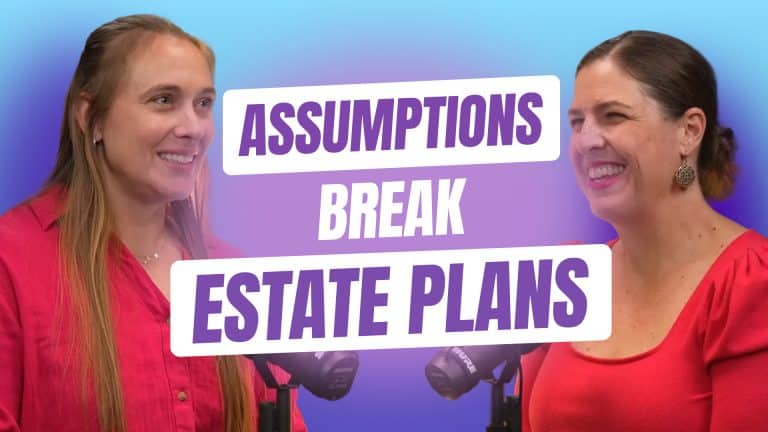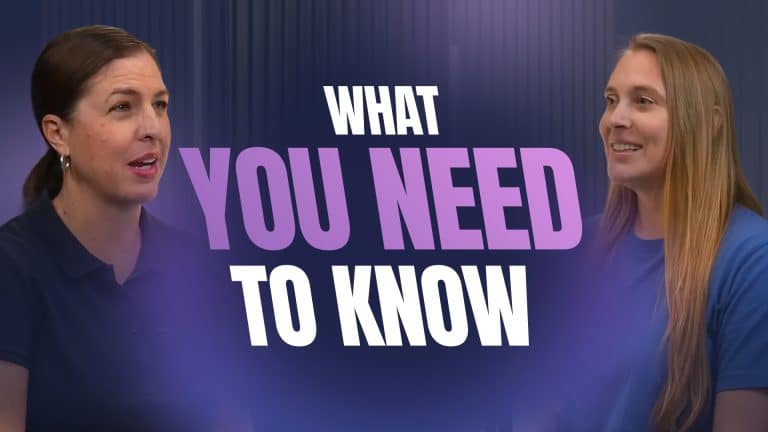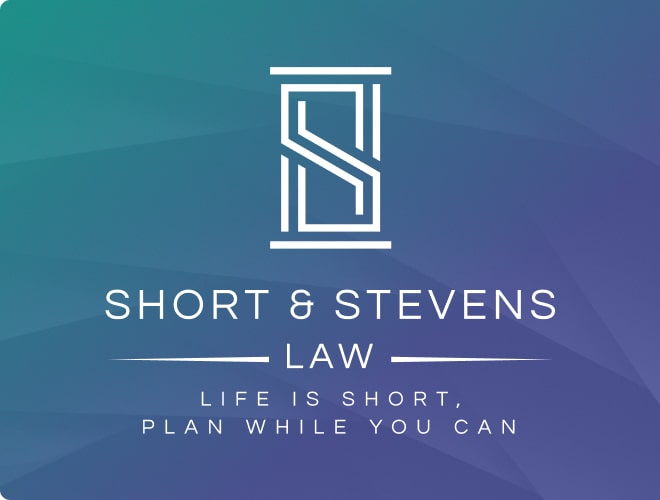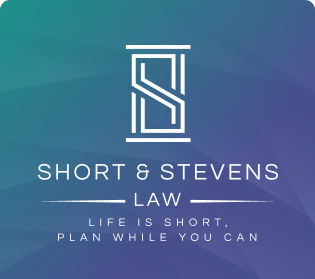Why AI Can’t Replace Your Estate Planning Attorney (And What Happens When You Try)
AI can do a lot of things well. It can answer basic questions about estate planning. It can draft documents. It can even tell you Nevada requires two witnesses for a valid will.
What AI can’t do is ask you about the relationship with your family members, recognize when someone might contest your estate, or fund your trust after creating it. And when those AI-generated documents fail after you die, there’s nobody your heirs can call for help.
What AI Actually Does Well in Estate Planning
AI works as a starting point for basic information. You type “I’m interested in a will” and it explains what a will does. You can narrow it to your state and it might pull up the relevant statute about signature and witness requirements.
That’s more information than you had before. That’s helpful for general understanding.
AI can help you think through topics you didn’t know existed. It responds to the questions you ask, generating information based on your prompts.
The problem shows up immediately. AI only feeds you information as good as the questions you ask it. If you don’t know what questions to ask, you won’t get the answers you need.
The Question You Don’t Know to Ask Is the One That Matters
You don’t know what you don’t know in estate planning.
You might tell AI you have four kids and want equal shares. AI generates a trust document with those specifications. Done.
But did you mention that one kid lives in Texas? Did you disclose that you have an adopted child from a previous relationship? Did you explain that your daughter is going through a divorce and you’re worried her inheritance could become marital property?
You didn’t mention those things because you didn’t know they mattered to the legal structure of your estate plan.
An estate planning attorney asks those questions. They’re trained to uncover the issues that affect your plan. AI only knows what you tell it.
AI Is Synonymous With Form Filling
When you use AI for estate planning, you’re essentially using a sophisticated form filler.
It’s a templated document with blank lines. The AI asks questions to fill in those blanks. Name, address, beneficiaries, assets. The same process as other non-attorney document preparers.
Financial advisors sometimes prepare estate planning documents this way. CPAs occasionally do it. Document preparation services exist specifically for this purpose. All of these entities have some familiarity with estate planning concepts.
None of them are attorneys providing customized legal advice.
They’re all doing the same thing. Taking your answers to predetermined questions and plugging them into template forms.
That’s document preparation, not estate planning.
The Massive Gap Between Documents and Planning
Estate planning documents are part of estate planning. They’re not the entirety of it.
If your ultimate outcome equals what that entity or person is doing, you chose well. With a good estate planner, the answer is yes. With AI, form fillers, and non-attorney preparers, the answer is probably no.
You won’t find out until something happens. By then it’s too late to fix.
What Your Heirs Face Without Attorney Support
Your mom did her estate planning through someone who wasn’t an attorney. Maybe she used AI. Maybe she used an online service. Maybe a financial advisor prepared the documents.
She dies. You find the documents. Maybe they’re drafts. Maybe they’re signed versions. You’re not sure.
Who do you call?
There’s no attorney card in the file that says “Call Short and Stevens if anything happens.” There’s no phone number to someone who can walk you through this process and answer your questions.
AI can’t pick up the phone. The document preparer might answer, but they’ll tell you “I’m not an attorney, I don’t provide legal advice.” The financial advisor says “I just filled out the forms based on what she told me.”
When an attorney prepares your estate planning documents, your heirs get a point of contact. They can call the attorney. The attorney picks up the phone and answers their questions, good or bad. The attorney knows what your specific documents say and how to implement them.
Why Attorneys Can’t Be Replaced by AI
Some people suggest AI might be better than individual attorneys because it has access to more information.
That’s technically true. AI can access vast amounts of data instantly.
But AI doesn’t have experience. It doesn’t have judgment. It doesn’t have emotional intelligence.
AI can’t understand the chaos that follows a loss. You can’t teach AI to recognize the headspace of a person going through grief and estate settlement. An attorney sees it instantly when talking to you.
The Author’s AI Experiment
One of the attorneys at our firm tried using AI to replicate the advice they would give clients. They asked AI the same questions they would ask clients in consultations.
They could never get AI to produce the answers they would have given.
The answers weren’t wrong exactly. They just weren’t complete. They missed nuances. They failed to account for family dynamics, relationship complications, or practical implementation challenges.
An attorney provides immediate understanding without a learning curve. They tell you what has to happen, what happens next, what to expect, and how to reach your desired outcome.
They do this because they’re not form fillers. Documents are part of the product, but the service is what you’re actually paying for.
The Trust Funding Problem AI Can’t Solve
The main reason trusts fail is because they’re not funded. People create the trust document but never transfer assets into it.
Having a trust document doesn’t protect your assets. The trust needs to own those assets for the protection to work.
Your house must be deeded into the trust. That requires a new deed prepared correctly and recorded properly with the county.
AI might eventually recognize this issue exists. Legal blogs discuss it constantly. AI will scrape that information and mention trust funding.
But will AI prepare the deed for you? Will it tell you exactly what needs to be on the deed? Will it explain where you need to record it and what fees are involved?
Will it tell you what happens if the county recorder kicks the deed back for errors? Will it explain the implications when you refinance your mortgage? Will it clarify what happens if you sell the house?
You could ask AI all these questions individually. But if you don’t know to ask them, you won’t get the answers.
That’s the core problem. The questions you don’t know to ask are the ones that determine whether your estate plan actually works.
Family Dynamics AI Never Discovers
Estate planning attorneys ask a critical question that AI and form fillers skip: “How’s the relationship with your family?”
The client answers: “Great. We all love each other.”
An experienced attorney keeps asking questions. They discover that one sibling feels the parents favor another. Someone feels mistreated or undervalued. Outside influences are affecting family relationships. Different family members have different expectations about what the estate plan should say.
These dynamics create estate contests after death. They tear families apart during probate. They result in litigation that consumes estate assets.
An attorney trained in estate planning knows how to uncover these issues and structure the plan to address them. They ask follow-up questions that reveal the actual family situation beyond the initial “everything’s fine” answer.
AI asks the question if you prompt it to. But it doesn’t have the judgment to recognize when an answer deserves deeper exploration. It can’t read tone, body language, or the hesitation that signals an uncomfortable truth.
Document Preparers Don’t Ask Follow-Up Questions
Attorneys at our firm have called document preparers about errors in estate plans. The response is always the same: “They gave me that information. That’s what I put down.”
No follow-up questions were asked. The preparer didn’t inquire whether there were children living in other states. They didn’t ask about adopted children or half siblings. They didn’t explore whether any beneficiaries had special needs or substance abuse issues.
They filled in the blanks with exactly what the client provided and nothing more.
You can’t blame the client. They don’t know what information is relevant to the legal structure of their estate plan. They don’t know that mentioning a child in Texas matters for estate tax purposes. They don’t realize that failing to disclose an adoption could invalidate certain provisions.
That’s not their job to know. It’s the attorney’s job to ask the right questions and extract the relevant information.
The Liability Problem When Things Go Wrong
When estate planning documents fail, who’s responsible?
If an attorney made mistakes, they have malpractice insurance. They can be sued for professional negligence. They have accountability.
If AI generated the documents, who do you sue? AI has no culpability. It didn’t provide legal advice. It generated text based on your inputs.
If a document preparer made mistakes, they
point to their disclaimer: “I’m not an attorney. I’m not providing legal advice. I just filled out forms based on your information.”
When you see that disclaimer anywhere in the estate planning process, run. That’s a massive red flag signaling zero liability if things go wrong.
Non-attorneys can do something that royally messes up your estate and face no consequences. They can create documents that fail completely, and once you’re dead and someone is reading the trust, it’s too late to fix anything.
You Get What You Pay For
Everyone price shops. That’s normal and understandable. You want the best product at the cheapest price.
Estate planning follows the same principle as everything else: you get what you pay for.
If someone charges a couple hundred dollars for estate planning documents, expect a couple hundred dollars worth of value. That’s template forms with your information filled in.
If you need basic transportation and a bike works fine, use the bike. If you’re trying to accomplish a complex goal with significant assets and family dynamics, you need something more than the cheapest option.
The goal of estate planning is to make sure your outcome matches your intentions. If that’s the goal, an attorney is necessary.
You can’t expect AI or document preparers to pick up the phone when the documents don’t work. You can’t expect them to fix problems they created. They have no obligation to support you beyond delivering the initial documents.
Forms Are Useless Without Expertise
You can buy estate planning forms all day long. Legal document stores sell them. Websites provide them. AI generates them.
Unless you know how to use those forms correctly, they’re useless. Having access to legal forms doesn’t mean you have a functioning estate plan.
The expertise isn’t in accessing the template. It’s in knowing which provisions to include, how to customize them for your situation, and how to implement them correctly.
What Happens When AI Documents Fail
The attorney might not get your business upfront when you choose AI or form fillers to save money.
They’ll get your business later when things go wrong.
You paid $1,000 or less for AI-generated documents. You thought you saved money by avoiding attorney fees.
Your trust didn’t do what it was supposed to do. Now your heirs are stuck in probate court, exactly what you tried to avoid.
Probate costs in Nevada today start around $3,000 for a simple estate with just a bank account. If you have a house, bank accounts, and a car, you’re looking at $5,000 to $10,000 minimum.
Those are today’s prices. If you die in 20 years, costs will be significantly higher.
The Time Value of Estate Planning
Prepaid burial expenses work on a simple principle: what you pay today is much cheaper than what you’ll pay in 10 years.
Estate planning works the same way.
If you get proper estate planning done today, you pay today’s attorney fees. Your family avoids tomorrow’s probate costs.
If you skip proper planning to save money now, your family pays inflated probate costs years from now when you actually die.
People make cost comparisons saying “probate only costs $5,000 and the estate plan costs more than that, so I’ll just go through probate.”
That comparison uses today’s probate costs. You’re not dying today. You’re probably dying 10, 20, or 30 years from now. What will probate cost then?
You’re comparing a known current cost to an unknown future cost and assuming the future cost stays the same. Everything gets more expensive. Probate won’t be the exception.
Probate Costs Beyond Attorney Fees
Even if the dollar amount seemed comparable, probate has costs you can’t measure in money.
Probate takes time. It’s a long process, often running six to twelve months for straightforward estates. Complex estates can take years.
Your family deals with courts, attorneys, and bureaucracy while they’re grieving. They hunt for documents they don’t know exist and can’t find. The trauma of that process adds to the pain of losing you.
That trauma could be alleviated entirely with a properly funded trust.
Probate destroys families. Entire families dissipate over estate disputes. Siblings stop speaking. Relationships end permanently. All because issues that could have been addressed in planning weren’t caught until it was too late.
AI Will Help Attorneys, Not Replace Them
AI will make legal research faster when used correctly within proper legal research frameworks. It will speed up document preparation tasks. It’s a helpful tool for professionals who understand its limitations.
AI won’t replace estate planning attorneys because attorneys don’t sell documents as their service. They sell service as their service.
The documents are part of what you get. The real value is the relationship, the ongoing support, the checking in when laws change, and the knowledge that someone will be there when your family needs help.
Bad AI Documents Create More Attorney Work
AI is generating a lot of bad estate planning documents. Those documents will create probate cases when they fail.
The attorney might not get the initial estate planning client who chose AI to save money. But they’ll get the probate client when that person dies and the AI-generated trust doesn’t work.
The family ends up in probate court paying $5,000 to $10,000 or more to fix what could have been handled correctly the first time.
When AI and Form Filling Work
AI can be great as a tool for learning basic concepts. Form filling works if you have the expertise to do it correctly and know exactly what you’re trying to accomplish.
For most people trying to protect their assets and families, neither option provides the safety and certainty they need.
If you want to be sure your outcome matches your intentions, if you want someone your family can call when you’re gone, if you want a plan that actually works, use an estate planning attorney.
Otherwise you’re going to end up with an attorney anyway when the documents fail. You’ll just pay more money, cause more family trauma, and get there after it’s too late to fix the problems properly.
Key Takeaways
- AI only knows what you tell it – if you don’t know which questions to ask, you won’t get the information that matters to your estate plan.
- Document preparation is not estate planning – AI, online services, and non-attorney preparers fill in template forms; attorneys provide customized planning based on your specific situation.
- The main reason trusts fail is lack of funding – creating the document doesn’t protect assets; you must transfer property into the trust, and AI won’t prepare deeds or guide that process.
- Family dynamics require attorney judgment – discovering relationship issues, outside influences, and potential contests requires follow-up questions AI and form fillers never ask.
- There’s no liability when AI documents fail – AI has no culpability, document preparers disclaim legal advice, and you have nobody to call when documents don’t work as intended.
- Probate costs more in the future than attorney fees cost today – comparing current probate costs to current planning costs ignores that you’ll die years from now when probate is much more expensive.
- Your heirs need someone to call – when an attorney prepares your documents, your family has a point of contact who can guide them through implementation and answer questions.
Frequently Asked Questions
Can AI create a valid will or trust?
AI can generate documents that look like wills and trusts, and some might even be technically valid if properly executed. The problem isn’t validity but effectiveness. AI doesn’t know which provisions your specific situation requires, can’t identify family dynamics that need addressing, and won’t help fund the trust after creation.
What’s the difference between document preparation and estate planning?
Document preparation fills in blanks on template forms based on information you provide. Estate planning involves asking questions to uncover issues you didn’t know mattered, customizing documents for your specific family and asset situation, and providing ongoing support including trust funding and implementation.
How much does probate actually cost?
In Nevada, simple probate with just a bank account might cost $3,000 minimum. Estates with a house, bank accounts, and vehicles typically run $5,000 to $10,000. Complex estates with business interests, disputes, or complications can cost much more. These are current prices that will increase over time.
Why don’t document preparers ask follow-up questions?
Document preparers fill in forms based on what you tell them. They’re not attorneys providing legal advice, so they typically don’t probe deeper to uncover information you didn’t volunteer. When documents fail, they point to their disclaimer that they only used the information you provided.
Will AI eventually get good enough to replace estate planning attorneys?
AI might improve at document generation and basic information retrieval, but it can’t replace the judgment, emotional intelligence, and relationship aspects of estate planning. Attorneys provide service, not just documents. They ask questions you don’t know to ask, recognize family dynamics that create problems, and stay available when your family needs help after you’re gone.
What happens if I use AI documents and they don’t work?
Your heirs end up in probate court trying to sort out the problems. Your trust might not be funded properly, provisions might not work as intended, or family disputes might arise that could have been prevented. By then you’re deceased and can’t fix anything, leaving your family to deal with expensive legal problems.
How do I know if someone is providing legal advice or just filling forms?
If they say “I’m not an attorney” or “I’m not providing legal advice,” they’re just filling forms. Attorneys are licensed to provide legal advice, carry malpractice insurance, and have liability if they make mistakes. Non-attorneys have disclaimers protecting them from responsibility when things go wrong.
Why does trust funding matter so much?
A trust only protects assets that it owns. If you create a trust document but never transfer your house, bank accounts, or other property into the trust, those assets go through probate when you die. The trust document alone doesn’t avoid probate; properly titling assets in the trust’s name is what makes it work.
Can financial advisors or CPAs do estate planning?
Some financial advisors and CPAs prepare estate planning documents as part of their services. Unless they’re also licensed attorneys, they’re providing document preparation, not legal advice. They might have familiarity with estate planning concepts, but they’re using templates and filling in information you provide without the legal analysis an attorney brings.
What should I do if I already used AI or a form filler for my estate plan?
Have an estate planning attorney review what you have. They can identify gaps, problems with funding, missing provisions, or issues that could cause your plan to fail. It’s better to fix problems now while you’re alive than leave your family to discover them after you’re gone.
{ “@context”: “https://schema.org”, “@type”: “FAQPage”, “inLanguage”: “en”, “about”: { “@type”: “VideoObject”, “url”: “https://www.youtube.com/watch?v=YTnXn75CDfg”, “name”: “Why AI Can’t Replace Your Estate Planning Attorney (And What Happens When You Try)” }, “mainEntity”: [ { “@type”: “Question”, “name”: “Can AI create a valid will or trust?”, “acceptedAnswer”: { “@type”: “Answer”, “text”: “AI can generate documents that may be technically valid if executed correctly. The problem is effectiveness. AI does not tailor provisions to your specific family, assets, and risks, and it will not help implement or maintain the plan.” } }, { “@type”: “Question”, “name”: “What’s the difference between document preparation and estate planning?”, “acceptedAnswer”: { “@type”: “Answer”, “text”: “Document preparation fills in templates with your answers. Estate planning is a professional process that uncovers issues you did not know to raise, customizes documents to your situation, and guides implementation such as trust funding.” } }, { “@type”: “Question”, “name”: “How much does probate actually cost?”, “acceptedAnswer”: { “@type”: “Answer”, “text”: “Costs vary by case and increase over time. In Nevada today, a very simple estate might start around $3,000, while estates with a home, accounts, and vehicles commonly run $5,000 to $10,000 or more, with higher costs for disputes or complexity.” } }, { “@type”: “Question”, “name”: “Why don’t document preparers ask follow-up questions?”, “acceptedAnswer”: { “@type”: “Answer”, “text”: “They are filling forms, not providing legal advice. They typically rely only on information you provide and do not probe for issues like children from prior relationships, beneficiary concerns, special needs, or other nuances.” } }, { “@type”: “Question”, “name”: “Will AI eventually replace estate planning attorneys?”, “acceptedAnswer”: { “@type”: “Answer”, “text”: “AI can speed research and drafting, but it lacks judgment, experience, and emotional intelligence. Attorneys provide strategy, ask the right questions, and support families through implementation and changes in the law.” } }, { “@type”: “Question”, “name”: “What happens if I use AI documents and they don’t work?”, “acceptedAnswer”: { “@type”: “Answer”, “text”: “Your heirs may end up in probate or litigation to fix gaps such as unfunded trusts, unclear provisions, or missing steps. By then you cannot correct the plan, and the process can be costly and stressful.” } }, { “@type”: “Question”, “name”: “How do I know if someone is providing legal advice or just filling forms?”, “acceptedAnswer”: { “@type”: “Answer”, “text”: “Look for disclaimers like “not an attorney” or “not legal advice.” Licensed attorneys provide legal advice, carry malpractice insurance, and have accountability for their work; form fillers do not.” } }, { “@type”: “Question”, “name”: “Why does trust funding matter so much?”, “acceptedAnswer”: { “@type”: “Answer”, “text”: “A trust only controls assets that are properly titled to it. Without funding—such as recording a deed for your home or retitling accounts—assets may still go through probate despite having a trust document.” } }, { “@type”: “Question”, “name”: “Can financial advisors or CPAs do estate planning?”, “acceptedAnswer”: { “@type”: “Answer”, “text”: “Unless they are also licensed attorneys, they provide document preparation rather than legal advice. They may use templates and your inputs, but they do not offer the legal analysis and accountability an attorney provides.” } }, { “@type”: “Question”, “name”: “What should I do if I already used AI or a form filler for my estate plan?”, “acceptedAnswer”: { “@type”: “Answer”, “text”: “Have an estate planning attorney review your documents and implementation. They can identify gaps, correct funding, and add provisions to address family dynamics and practical issues before problems arise.” } } ] }



